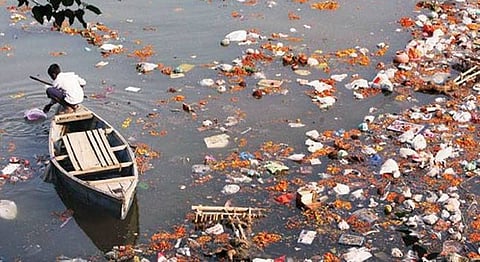
- HOMEGROWN WORLD
- #HGCREATORS
- #HGEXPLORE
- #HGVOICES
- #HGSHOP
- CAREERS
- ABOUT US
- CONTACT US

On Monday, the 20th Of March, the Uttarakhand High Court declared the Ganga and Yamuna rivers to be living entities, giving them the same rights as human beings. The motive behind this ruling of the court is to assist in the preservation and conservation of the rivers, which are currently subject to large scale industrial and toxic pollution. In accordance with this new ruling, polluting either of the rivers is a crime equivalent to harming another human being.
While we, human beings, are considered to be a “natural person”, the rivers are considered to be “juristic person”, a move made to ensure the managing of the asset, essentially. Moreover, “The ruling means that Ganga and Yamuna are essentially like minors — incapable of holding or using the property — and need to be placed under the care of a manager and/or a guardian. These caretakers will be responsible for ensuring the rivers are not misused, abused or misappropriated for personal use” says an India Today report. Considering the matter at hand, the Advocate General has been appointed to be the manager and he will be responsible for the care of the rivers.
As far as complaints are concerned, the court order allows for them to be filed in the name of the two rivers. “It also gives the Centre eight weeks to set up boards for cleaning and maintaining the rivers,” as mentioned in this report by the Hindustan Times. This management board would be responsible for irrigation, water supply and hydropower. The ‘Clean Ganga’ campaign itself made headway earlier this month as projects worth 1900 crores had been cleared. As stated in the same report, 13 out of 20 projects include the setting up of sewage treatment plants, and the upgrading and maintenance of existing ones. Himanshu Thakkar, an engineer who coordinates the South Asia Network on Dams, Rivers and People told The Guardian that “there are already 1.5bn litres of untreated sewage entering the river (Ganga) each day, and 500m litres of industrial waste,” a situation requiring immediate intervention.
With hundreds of pilgrims visiting these spots every day the need for drastic clean-up measures has become dire. Now that these holy waters have been elevated to near-human status we can only hope that the need for their preservation will be taken a little more seriously. But considering India’s history with upholding human rights we have our doubts.
